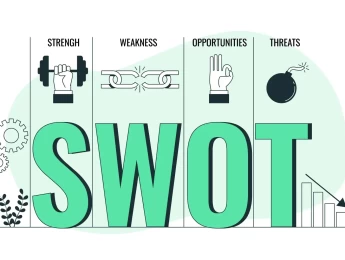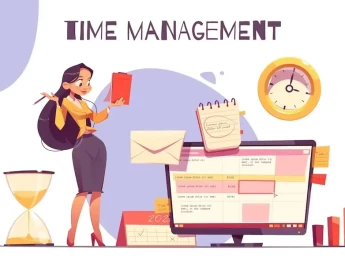Project management is essential for company success and growth. To stay ahead of the game, every company needs to constantly assess its market position against competitors, understand what customers may expect in the future, and make changes to its systems, processes, and procedures to maintain its position.
When making changes, it’s important that the company fully investigates the need for the change, backs up this requirement with data, and plans out a strategic roadmap, including budget requirements, staffing, and timescales for each element to reach completion.
The ability to steer and manage complex projects will require you to understand the reasons for the development and the project's expected outcomes. You will need to set expectations with all parties involved and pinpoint the most important aspects of the project. You should create a roadmap based on the customer journey, delegate specific project elements to individuals based on their skill sets, and have regular catch-ups with everyone involved to maintain momentum.
This course will discuss the specific tools and techniques for keeping your project on track, ensuring you stick to your strict timescales while remaining on budget for a successful and fruitful outcome.
Upon completion of this course, participants will be able to:
- Steer a complex project plan and obtain a positive outcome.
- Understand where your business needs to change and set progress in motion.
- Develop an effective project framework stating requirements and systems needs.
- Pitch successfully to gain funding from investors.
- Predict future changes in the market and assess competitor movements to come out on top.
- Create a valuable roadmap with specific pinpoints for targeting.
- Use data-driven methods to understand the successes and failures at each stage.
- Understand the most up-to-date research on complex system development.
- Delegate and communicate effectively with each party involved.
- Create a flexible process model to adapt to changes in requirements.
- Identify risk areas and provide continuity plans to maintain service throughout the change process.
This course is designed for anyone responsible for planning or rolling out a large project across any business department. It is particularly beneficial for:
- Project Planners
- Operations Managers
- Business Owners
- Directors
- Planning Managers
- Change Managers
- Auditors
- Risk Assessors
- Sales Directors
- Financial Directors
- IT Consultants
This course uses a variety of adult learning styles to aid full understanding and comprehension. Participants will view videos to explore the ins and outs of project management and see firsthand where errors can be made and the consequences. They will be introduced to a wealth of planning tools and technologies to formulate their strategic roadmap and will be presented with a task list of things to consider before planning a complex roadmap pitch.
Each participant will work within their allotted team to develop a scaled-back roadmap to pitch a specific project. For the final presentation, they will identify potential risk areas and provide innovative solutions.
Day 5 of each course is reserved for a Q&A session, which may occur off-site. For 10-day courses, this also applies to day 10
Section 1: What is a Complex Project?
- What sets your project apart from the others?
- Considering the whole of the business.
- Who does your project affect?
- Investors, partners, and stakeholders.
Section 2: Why is Strategic Change Necessary?
- Review your competitors.
- Data-driven predictions.
- IT considerations.
- Your future goals and how to achieve them.
- Thinking outside the box.
Section 3: The First Stage of Planning
- Budget requirements.
- Thinking about staffing.
- Tools and equipment changes.
- Security concerns.
Section 4: Project Innovation
- The art of good delegation.
- How to manage a large team.
- Communication and goal setting.
- SMART targets.
- Gantt charts.
- Your stepped progression ladder.
- How to review a project from afar and notice inefficiencies.
- Creating your perfect customer journey.
Section 5: Change & Control
- Keeping accurate records.
- Your control measures.
- Developing a continuity plan.
- Assigning responsibilities fairly and sensibly.
Section 6: Risk Areas & Auditing Procedures
- Business continuity measures.
- Learning from your mistakes.
- Assessing risk before the change.
- Keeping a change log to track errors and issues.
Section 7: How to Gain Buy-In
- Acknowledging your problems and presenting potential solutions.
- Negotiating techniques and body language.
- Asking open questions.
- Active listening techniques.
- Listening to feedback and accepting flaws.
Section 8: Communication & Feedback
- Surveys and post-change communication.
- Review data throughout the process.
- Aiming for continuous improvement.
- Accepting issues and rolling back change where required.
Upon successful completion of this training course, delegates will be awarded a Holistique Training Certificate of Completion. For those who attend and complete the online training course, a Holistique Training e-Certificate will be provided.
Holistique Training Certificates are accredited by the British Assessment Council (BAC) and The CPD Certification Service (CPD), and are certified under ISO 9001, ISO 21001, and ISO 29993 standards.
CPD credits for this course are granted by our Certificates and will be reflected on the Holistique Training Certificate of Completion. In accordance with the standards of The CPD Certification Service, one CPD credit is awarded per hour of course attendance. A maximum of 50 CPD credits can be claimed for any single course we currently offer.
- Course Code PO4-107
- Course Format Classroom, Online,
- Duration 5 days













